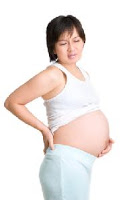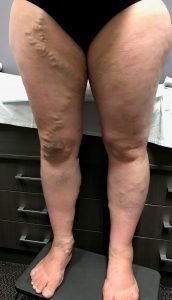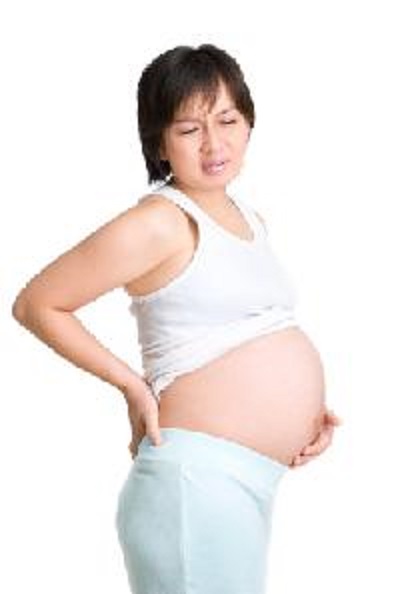This is a comment made to me by many pregnant patients. It is not that they don’t want to be pregnant. It is that they are struggling because of adverse symptoms of pregnancy that they are experiencing.
There are many adverse symptoms that a woman can experience in pregnancy. Adverse symptoms do not usually mean anything is wrong. Adverse symptoms do not usually mean that there are any serious complications of pregnancy. Adverse symptoms are usually due to physiological, hormonal and anatomical body changes that occur while pregnant.
Some women have minimal adverse symptoms and so cope well. Many of these women say they enjoy being pregnant.
Some women have many adverse symptoms and consequentially don’t cope well and say they don’t enjoy being pregnant.
If you are in the latter group then I encourage you to focus on why you got pregnant – viz to be blessed with a beautiful baby. Focus on the destination and not on the journey (pregnancy). This will help you cope with the adverse symptoms you are experiencing. Remember that adverse pregnancy symptoms will end once you have your baby.
As well, contact me as there are many measures that can be introduced to support you and help you cope with adverse symptoms. As well sometimes adverse symptoms are due to pregnancy complications, so it is important I know to check this.
I tell patients often that God was very wise in giving the responsibility of pregnancy and childbirth to women and not to men. I don’t think most men would cope. If men had to go through what women put up with while pregnant, it is likely the human race would have died out.
These are the commonest adverse symptoms (in alphabetical order of category)…
Backache
- Backache is common and is usually worse as pregnancy advances. Backache can be a major issue from the beginning of pregnancy if there is a pre-pregnancy back problem.
Bending difficulty
- Difficulty bending and not being able to touch toes is very common in advanced pregnancy. Often women in advanced pregnant woman can’t easily put on their shoes or cut their toenails.
Breasts
- Painful swollen breasts. Can be an early sign of pregnancy. Gets worse with advanced pregnancy.
- Leaking breasts. Common in advanced pregnancy.
Bladder
- Frequent urination. Can be an early sign of pregnancy. Persists throughout.
- Urinary incontinence. Common in advanced pregnancy because of pressure of the large uterus on the bladder. Pelvic floor exercises don’t help.
Body image change
- Many women don’t like their physical appearance in pregnancy and want to get back to their pre-pregnancy look. “I look ugly” is a common comment.
Breathlessness
- More common in advanced pregnancy with the increasing size of uterus. Most common in last weeks of pregnancy as the rib cage is displaced upwards by the large uterus. Shortness of breath is worse if you are anaemic.
Circulation
- Light-headedness and fainting. More common as pregnancy advances. Can be worse when lying on your back in advanced pregnancy.
- Varicose veins (legs and vulva). More of an issue as pregnancy advances. Can be very uncomfortable.
- Palpitations. More common as pregnancy advances. Only a concern if they persist for a long time period (> 1 hour).
- Excess saliva, bleeding nose and blocked ears. More common as pregnancy advances. Due to extra blood flow in ‘skin’ tissues.
Gastro-intestinal
- Nausea and vomiting. Common. Usually confined to first trimester. If severe vomiting you will need help as excessive vomiting can be dangerous.
 Occasionally throughout. Can reoccur in advanced pregnancy
Occasionally throughout. Can reoccur in advanced pregnancy - Constipation. Common. Stool softeners and diet changes can help.
- Haemorrhoids. Common especially in advanced pregnancy.
- Bloating. Common throughout pregnancy.
- Food aversions and food cravings. Common.
- Heartburn and indigestion. More common as pregnancy advances.
Emotional, mental health
- Mood changes (such as unexplained crying), depression, irritability, anxiety are common. If anxiety-depression severe you will need medical help
Headaches
- Can be throughout. More likely if you get headaches when on the contraceptive pill. Your blood pressure needs to be checked to make sure it is not elevated.
Joints loose
- Can cause discomfort. Common in advanced pregnancy. Due to Relaxin hormone
Legs
- Leg cramps. More likely as pregnancy advances. Painful.

- Varicose veins. More likely as pregnancy advances. Can be very uncomfortable.
- Swelling. Common. Uncomfortable. Swelling of legs, ankles and feet can result in inability to wear shoes.
Lethargy
- Common. Gradually worse as pregnancy advances.
Looking more advanced than you are.
- Common if you have had a baby because of bloating and poor tone of the abdominal wall muscles.
Loss of appetite
- Common from the outset of pregnancy.
Pelvic heaviness
- Some women are very aware of this in early pregnancy with the uterus enlarging.
- Heaviness with comments such as “feels like it is going to fall out” are not uncommon in advanced pregnancy. Due to pressure from the uterus getting bigger.
- Is more so if you have had a baby as your muscles and ligaments have been stretched from that pregnancy and are not as strong.
- A Velcro belt often helps.
Sciatica
- Not common. Usually in advanced pregnancy and due to pressure of the uterus on the sciatic nerve.
Skin changes
-

female belly with stretch marks
Itchy skin. Common. More common as pregnancy advances. If in second half of pregnancy if itchy hands and feet need hepatic cholestasis needs to be excluded.
- Stretch marks. Common, especially as pregnancy advances.
- Pigmentation. Common. Can occur on face, areola of breasts and midline of abdomen (linea nigra).
- Acne. Common.
Swelling
- Swelling of feet, legs, hands, face, Common.
- Tingling and numbness in your hands. Can be painful.
Tiredness
- Excessive tiredness is common, especially in advanced pregnancy. Worse if anaemic.

Thrush
- Common throughout pregnancy, especially if predisposed to it pre-pregnancy
Vagina/Vulva
- Vulval swelling. Common
- Vulval varicosities. Sometimes especially in advanced pregnancy. Can be very uncomfortable.
- Excessive vaginal discharge. Usual and unpleasant.
Varicose veins
- Common.
- Usually of legs but can be vulval. Can be very uncomfortable.
Walking difficulty
- Common in advanced pregnancy because of large uterus and centre of gravity changes.
- Worse if back problems and/or sciatica.
Wardrobe challenges
- Common as pregnancy advances. “I can’t wear anything” is a common comment. Due to increasing size of abdomen, enlarging breasts and oedema. Oedema of feet can result in being unable to wear shoes.
Weight gain
- Normal
- Sometimes excessive weight gain possibly due to overeating or oedema or large baby.
- If excessive can result in greater difficulty with movement and activity, greater abdominal discomfort, greater shortness of breath and tiredness.


